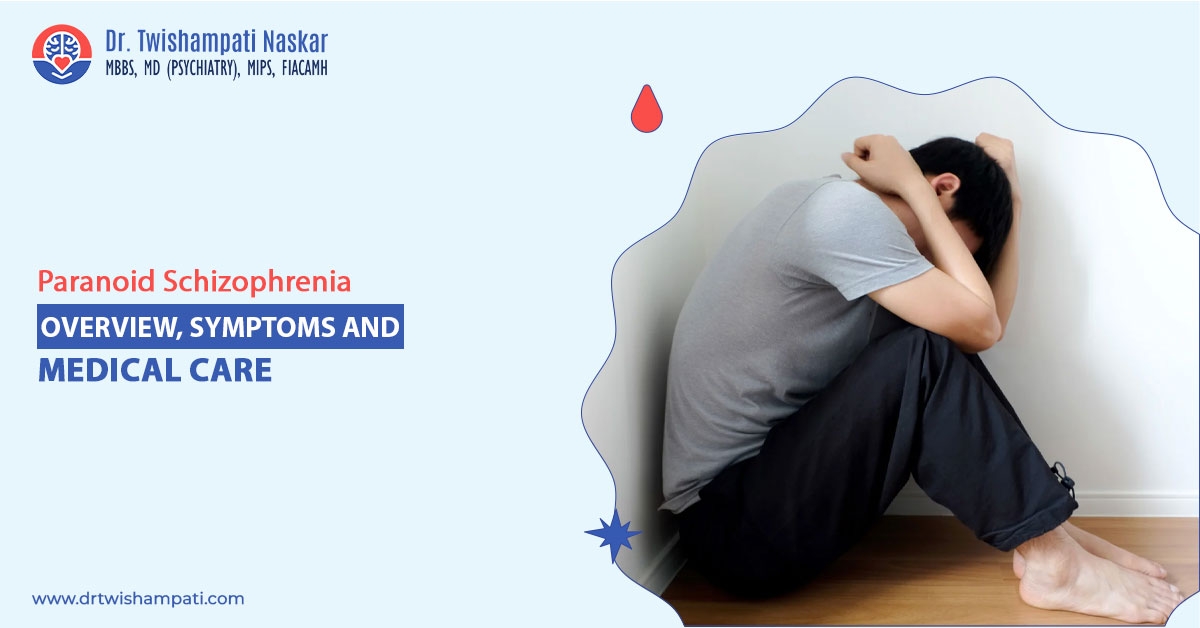Bipolar disorder or manic depression is a mental health disorder that can cause sudden emotional lows and highs. These extreme mood swings with depression and manic episodes can lead you to lose interest in daily life activities. Without proper management of the mood episodes, this psychiatric disorder may interfere with your behavior, sleep, judgment, thought process, activity levels, and energy. It is pivotal to contact an experienced psychiatrist and get the best bipolar disorder treatment in Siliguri for effective management.
In most cases, the doctors curate a treatment plan by blending psychological counselling and medications to control the symptoms. To get an early diagnosis, you must be able to identify the signs of the disorder and seek help immediately. Some of the common signs that most people with bipolar disorder may experience are self-confidence, poor decision-making, increased activity, depressed mood, fatigue, suicidal tendencies, and insomnia. Along with professional guidance, self-management is an important step that one suffering from this disorder must take to enhance their overall well-being.
Top Self-Care Tips To Manage Bipolar Disorder
1. Understand the warning signs
One of the most important self-care tips to control the episodes of bipolar disorder is to learn about the warning signs. This will help you in understanding the pattern or signs that you experience before a mood episode. Herein, you may see changes in your behavior, sleeping patterns, or eating patterns. If you’re aware of the changes in your mood then it will help you take help of a support system who can assist you to overcome the episode.
You may also consider sharing the information about the warning signs to your friends and family so that they can give you special attention during mood episodes. Along with detecting the signs, you can make a relapse recovery plan that should include your emergency contacts and measures to be taken. It is vital to involve your doctor in this recovery plan as well.
2. Identify the triggers
Triggers for bipolar mood disorder episodes are different in different people. This is why it is crucial to identify the triggers that often change your mood and lead to the episodes. Some people may find that their condition worsens if they are exposed to any stressful situations or have been extremely busy for a longer period. Additionally, lack of uncertainty or major changes in life such as losing a loved one, transfer to a new place, and wedding can lead to the sudden mood episodes.
You must know that some people may also experience the episodes due to underlying mental issues, physical problems, or sleeping disturbances. Don’t hesitate to book an appointment with the best psychiatrist in Siliguri to get help while identifying the triggers. This self-care measure will definitely help in reducing the impact of bipolar disorder and assist you curate an action plan.
3. Don’t ignore your physical health
Your mental well-being is highly dependent over your physical health. This is why it is essential for you to take care of your health to manage bipolar disorder. Some of the effective tips that can enable you to sustain your physical and mental health are-
Indulge in regular exercise: Exercise and increased activity levels can be extremely beneficial in managing stress and relaxing your mind. You must know that exercise increases the production of feel-good hormones or endorphins that can reduce the likelihood of mood episodes. Herein, you can indulge in swimming or yoga to enhance your mood.
Eat a nutritious diet: Diet is also essential to make you think clearly and decrease mood swings. A natural diet rich in fresh fruits, vegetables, fishes, and nut and seeds can be beneficial for your condition.
Sleep nicely: By now, you know that sleeping disturbances can be a major trigger for bipolar disorder. This is why it is important to get enough sleep to reduce the symptoms of the mental issue. You need to sleep for around 8 hours a day to reduce the complicacy of the episodes.
4. Follow a routine
Another important self-care tip that complements bipolar disorder treatment perfectly is to set a fixed routine. You should note that a fixed schedule can have a positive impact over the mood episodes while making you stable. Herein, having a routine can also help you stay motivated and distracted from the symptoms which will ultimately uplift your mood. Some of the things that you can add in your routine are-
Taking medications at the same time, which will help you be consistent and control the side-effects of the drugs.
Performing regular activities such as going to the bed and eating food on a fixed time as it can enhance your physical health.
Making time in the day for social plans or self-time which may include gatherings, meet-ups, and relaxation practices.
5. Surround yourself with a supportive network
Building a supportive network is another essential part of the self-care plan. This step can help you manage your mood in case of serious mood episodes. Herein, the supportive network may include your family, friends, or other close members with whom you’re comfortable.
These people can help you recognize the early signs of a mood episodes while assisting you to continue a healthy lifestyle and keep you motivated. You can often share your feelings to these near ones when you’re feeling low and help you plan a crisis plan. If you cannot find anyone close then you can also opt for peer support. One forum and local support groups can be the best options to communicate with people and share your feelings.
6. Manage stress
Another major trigger of bipolar disorder is stress. Henceforth, to manage this disorder you also need to manage stress. You have to take care of yourself during stressful situations and try to avoid stress altogether to improve your condition. If it is becoming impossible for you to control stress then you can seek the assistance of a medical professional who can recommend medications or other therapies to overcome stress.
You must know talking therapy, meditation, and mindfulness techniques can be highly effective in relieving stress. Take part in the one-on-one sessions with the doctor and share your feelings and emotions to avoid the main triggers of stress. This is an effective part of the bipolar disorder treatment in Siliguri which can enhance your overall mental well-being.
7. Track your mood
Tracking your mood can help in managing the symptoms of bipolar mood disorder. Herein, you can use your phone or maintain a diary to note down any changes in your mood patterns. Mood diary or mood scale can be extremely effective in assessing the mood episodes. There are various online templates or you can make your own personalized temple to regularly journal your mood states.
This will help you to identify the time when mood swings usually start and stop. You must remember that this will ultimately help you in making the crisis plan more accurate. Any environmental triggers or stress episodes leading to worsening of symptoms can also be identified with this advantageous self-care tip.
Along with these general self-care tips, the bipolar disorder treatment in Siliguri must also include specialized measures during the depression or manic episodes. Scheduling time for relaxation, taking quick breaks, avoiding added stimulation, and changing your environment can be some effective steps that can help you come out from the painful mood episodes.
Comments (0)







